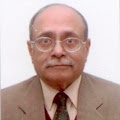IAS memories: Voting day tamashas
24 Feb 2015
 I first met Bachua Tewari in the chamber of the District Magistrate, when I was deputed as an election observer in the mid 1990s. He introduced himself as a worker for a political party, which had decided not to contest a seat from the constituency.
I first met Bachua Tewari in the chamber of the District Magistrate, when I was deputed as an election observer in the mid 1990s. He introduced himself as a worker for a political party, which had decided not to contest a seat from the constituency.
He added that even though he was about 60 years old, people said that he had retained the ways of a child on account of his name.
I next met him a few days later when he came to cast his vote at the Polling Station of his village, where I happened to be present.
We immediately recognised each other. He cast his vote while we exchanged pleasantries. Suddenly he turned to one of the polling officers to remind him that he had forgotten to put the indelible ink mark on the index finger of his right hand before handing over the ballot paper to him.
He made the polling officer put the mark on his finger although he could have walked out of the polling station without it.
Later in the day I came across complaints that some people were repeatedly re-voting even after the indelible ink had been put on their fingers, either by wiping off the mark or by threatening the polling personnel when they objected. Bachua Tewari was indeed an exception.
Later he narrated an incident recounted to him by one of the presiding officers (I shall, for the sake of expediency, call him Ram Naresh) of a polling station.
While Ram Naresh was on polling duty at a polling station in an earlier election, the workers of a particular political party came and snatched away the ballot papers, stamped them and stuffed them into the ballot box.
Ram Naresh watched the proceeding helplessly as the large group of political workers were also armed. There was no police force to safeguard the polling station.
After the miscreants had left, workers of the main opposition party (apparently having been informed of what the other party's workers had done) came to the same polling station and snatched away the ballot box itself.
A little later, men of yet another party arrived and started looking for the ballot boxes, which had already been taken away by the previous mob.
Ram Naresh told them that the ballot box had already been snatched, but they did not appear to be convinced. He then offered them a solution.
Ram Naresh told them that since the ballot box with the unlawfully stamped ballot paper stuffed into them had already been taken away, all he could offer them were a host of documents and envelops which were still with him.
Several of these required meticulous filling up by the presiding officer at the end of the day. He told the workers of this party to take those papers so that they would have the satisfaction of showing something to their bosses for their efforts and, at the same time, save him the bother of having to fill them up.
After this narration, Bachua Tewari asked, ''Have you had your breakfast?'' ''No'', I said, ''on a solemn occasion like this, I prefer to observe fast.''
The methods of retaliation by political parties to booth capturing were refined over time.
If one party snatched, stamped and stuffed ballot papers, the other party did not necessarily have to lug it with the ballot box and the election documents any more.
During my stay as an election observer, I came across instances where the second party had poured water (helpfully arranged by the authorities on account of the scorching summer heat) into the ballot box; and members of the third party arriving on the scene thereafter had poured acid or ink or even naturally relieved themselves into it.
The hapless and terrorised local presiding officers at the concerned polling stations, faced with such onslaughts, in most cases, preferred to keep mum.
In some cases they reported the event without mentioning any names, to save their skin. In other cases they adopted ingenious ways of reporting the crime -a few returned with unsealed ballot boxes, and others indicated insertion of unsigned ballot papers in the ballot paper account.
The situation has somewhat changed after the introduction of the Electronic Voting Machines.
But more ingenious ways of beating the system have emerged with equal effect.
Local solutions to global problems, that is. The technology has changed radically, but not the intentions. However (and there is always a however in the end), the scope and scale of malpractices, from all accounts, has perhaps been considerably reduced.


















